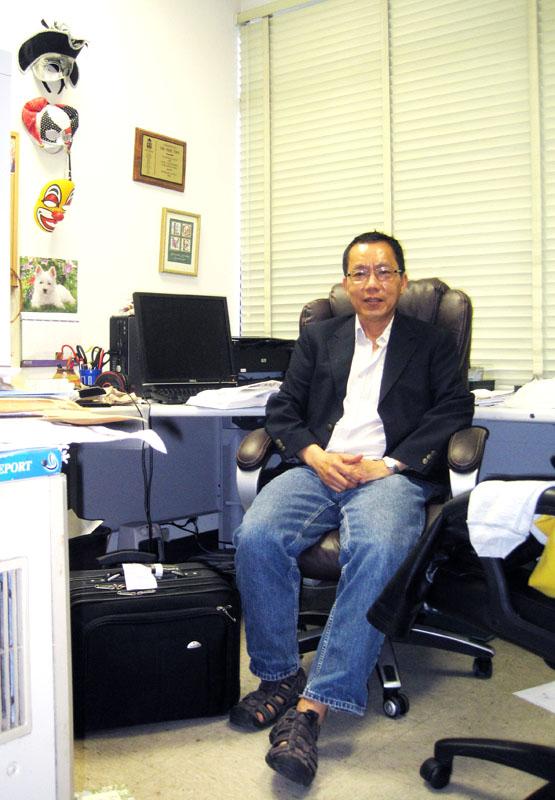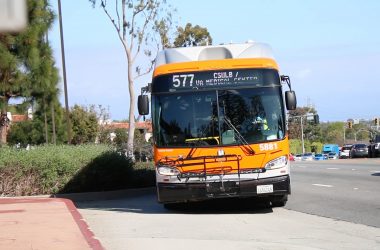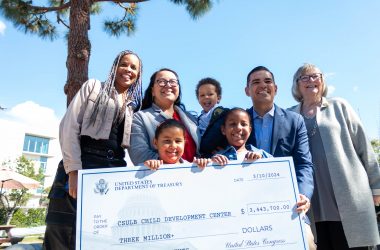In most college courses, students learn how to write research papers or memorize facts for their final grade; this semester, Philip Tan’s class learned how to save a city.
Social Work 411, Generalist Social Work Practice With Communities and Institutions, is a class consisting of a semester-long project in which students identify a social problem within the community and devise a detailed hypothetical solution.
The goal of the course is to “familiarize students with the [social work] practitioner’s role and the dynamics of the practice arena.”
Tan’s class consists of only 10 students. They were divided into four groups to complete their projects, which included improving conditions for immigrants, disabled students on campus, homeless people in Long Beach and disadvantaged labor workers around the city.
“Some of the most basic things, we take for granted,” Tan said.
As part of the assignment, students were required to venture out into the community and identify a prominent social issue within. They talked with the sort of people that their solution would aim to benefit, such as the homeless and the disabled.
Finally, they took information from their research and created a budgeted grant proposal for a project that they felt could potentially fix the problems they identified.
Disability access in the Student Recreation and Wellness Center
Gina Vietro and Cuong Nguyen, who is disabled, put together a presentation calling for more adequate access for disabled students in the Student Recreation and Wellness Center.
“They have a lack of resources and equipment,” Nguyen said. “[The disabled students] are disappointed.”
“They make it out to be like they can help all these students, but not ones with disabilities,” Vietro said.
The SRWC states that one of its goals is making the center accessible for all students, which makes sense because all students pay to use it with their student fees.
Nguyen and Vietro argued that it does not make good on its promises, and needs to be reexamined from a different perspective.
“Not everybody can use that gym,” Vietro said. “It is not a building that lends itself easily accessible for students with disabilities. We do not believe that Cal State Long Beach envisioned it being used by students with disabilities.”
“The facility fell short of its lofty goals,” Nguyen said. “It is difficult, if not impossible [for disabled students] to enjoy.”
The SRWC does not allow wheelchair access on its gymnasium floors for fear of damage to the wood, so wheelchair bound students are unable to play basketball.
Nguyen interviewed three disabled students and found that only one of them was satisfied with the SRWC. A paraplegic student voiced a concern that he could not use many of the weight-lifting machines because his wheelchair could not fit.
Jornaleros: Day laborers
Janet Munoz and Sarah Pedraza focused their project toward aiding jornaleros, or day laborers, in Long Beach. Day laborers are immigrant workers hired and paid each day with no promise of future employment. They provide work on an “as needed” basis.
The majority are males between ages 18 and 60, and they are generally of Mexican or South/Central American descent. They believe that working conditions are inhumane, and are often mistreated and abused by employers and police. Because of their immigrant status, it is fairly easy to take advantage of them.
“There is a misconception about them that they’re criminals,” Pedraza said. “They’re not here to be criminals. They’re just here to work.”
The goals of Munoz and Pedraza’s project were to grant jornaleros enough provisions to meet basic human needs. Among these goals were medical and dental services, daily meals and food to take home to their families, portable bathrooms and legal consultation.
Across the nation, jornaleros are often treated very poorly. Local police kick them off public grounds and drive away potential employers, sending a resounding message that they are not welcome.
If they do not heed the first warning, they are arrested the second time.
Munoz and Pedraza built their grant proposal on a hypothetical budget of $25,656.
Homeless hygiene in Long Beach
Sophie Brooks, David Chavez and Aimi Shima attempted to reach out to the homeless population of the city with their presentation about providing basic hygienic care for the homeless people in Long Beach.
The goal of their project was to create a place where homeless people can take showers and perform basic acts of hygiene, such as showering, washing their clothes and brushing their teeth.
“This program would help our clients to be more self-sufficient,” Brooks said.
The National Association of Social Work code of ethics targets those who are “vulnerable,” “oppressed” or “living in poverty.” The group saw their target clientele as an ideal representation of all three.
“The agency’s goal is not preventative,” Shima said. “It is to relieve the everyday struggles of homelessness.”
Built on an annual budget of $552,526, the project was envisioned to incorporate questionnaires to gauge its effectiveness, as well as provide an anonymous way to track the frequency of its resource use. Each client would have a photo ID for this purpose, but would not be recognized by name.
Though the epidemic of homelessness is well known and widespread across Long Beach, the group decided to focus its efforts on the city’s first, second and sixth districts. The city has been known to actively remove homeless people from certain venues when they became seen as an inconvenience.
The group planned to attempt attaining sponsorship for its project from the City of Long Beach Multi Service Center.
The result
Though the projects in Tan’s class were strictly hypothetical models of what could be done, the problems and issues they addressed are quite real and very prominent locally. Through this class, Tan’s students were able to seek out a predicament in the city and devise a solution. Tan articulated his specific goal for the class in his syllabus.
“The goal of the course is to give the student foundation knowledge and skill for entry-level BASW professional practice that can promote needed social change and help to empower people, organizations and communities.”
In the eyes of his students, Tan succeeded.
Disclaimer: The Daily 49er is not responsible for Postings made on www.daily49er.wpengine.com. Persons commenting are solely responsible for Postings made on this website. Persons commenting agree to the Terms of Use of the website. If Postings do not abide by the Rules of Conduct or Posting Regulations as listed in the Postings Policy, the Daily 49er has all rights to delete Postings as it deems necessary. The Daily 49er strongly advises individuals to not abuse their First Amendment rights, and to avoid language suggestive of hate speech. This site also encourages users to make Postings relevant to the article or other Postings.




